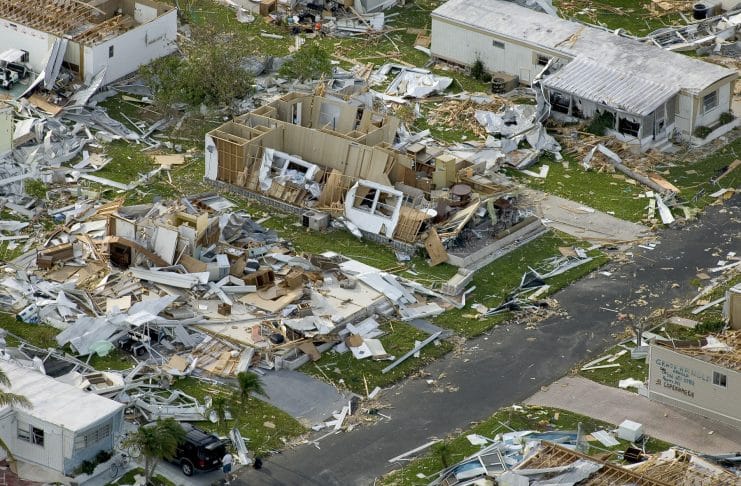It's possible you may have heard that natural disasters have silver linings. Most often it's how the reconstruction – with new and better things – will create an economic boom.
This, and other economic fallacies, are hard to root out of the public consciousness because they get repeated so often. But let's say it one more time: disaster is a bad thing – full stop.
But if you want a more thorough look at such fallacies, FEE's Patrick Carroll tackles the top three. Including the broken window fallacy:
The broken window fallacy is a classic hurricane-season misstep. “Hurricanes may do damage,” the reasoning goes, “but look on the bright side. Think of how many jobs will be created because of the destruction. Think about all the demand that will be stimulated. Things may look bleak, but this is actually good for the economy.”
Bastiat debunked this reasoning in his 1848 essay That Which Is Seen and that Which Is Not Seen, and countless economists since have echoed his remarks. In the essay, he tells the parable of a shopkeeper whose careless son breaks a window, and he asks the reader whether this is good for the economy. At first glance, it's tempting to say yes. But as Bastiat shows in the story, this conclusion ignores the unseen effects of the broken window.
“If…you come to the conclusion,” he writes, “as is too often the case, that it is a good thing to break windows, that it causes money to circulate, and that the encouragement of industry in general will be the result of it, you will oblige me to call out, ‘Stop there! your theory is confined to that which is seen; it takes no account of that which is not seen.'”
What is not seen, briefly, is the lost opportunities, the things that could have been done with our resources had they not been needed to replace the broken window. Taking those into account, it becomes clear that the broken window is harmful to the economy. After all, there is now one less window in our stockpile of goods.
The same reasoning applies on a larger scale. There may be plenty of jobs and demand when a hurricane destroys a town, but saying this is “good” for the economy is simply wrong. If this logic were true, the more destruction we experience the better off we'd be! But economic reasoning—and plain common sense—tells us this can't be right.
It isn't right. But the fallacy endures because we can't easily value – let alone appreciate – the “unseen” part of Bastiat's story.
We can see rebuilt homes and businesses. We can't value – never mind see – how the money, material and manpower may have been put to other, more productive uses.
That's not to say we shouldn't rebuild or aid those who suffer from disaster. Far from it. But we should view those efforts for what they are – humanitarian and compassionate – rather than an economic growth story.
READ NEXT: Illegal Aliens Caught Looting in Florida – DeSantis Says ‘They Shouldn't Be Here at All' >>



Joe Biden “Let Me start off with two words” “Made in America”
Just how far gone is this idiot?
He must be a liberal. Did he think of the waste stream and the carbon foot print for rebuilding? Both are evil to liberals.